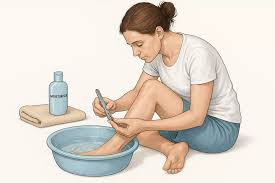Family medicine offers a strong foundation for long-term health and well-being. Unlike specialists, family medicine providers deliver comprehensive care for individuals and families across all ages. This continuity supports effective preventive health, proactively maintaining wellness and preventing illness. By forming lasting relationships, providers gain a deep understanding of your health history, lifestyle, and risk factors, becoming key partners in your health journey.
What is Family Medicine?
The field of family medicine plays a key role in preventive health, offering a range of strategies and services to keep you healthy. This includes routine check-ups, health screenings, immunizations, and lifestyle counseling. By focusing on early detection and prevention, family doctors help identify potential health issues when they’re most treatable or stops them from developing altogether. It serves as your consistent point of contact for all your preventive care needs. Prioritizing preventive care can lead to better long-term health outcomes.
Why Does Continuous Care Matter?
One of the defining features of family medicine is its focus on continuous care. Your provider sees you for routine check-ups, acute illnesses, and management of chronic conditions. This ongoing relationship allows them to build a detailed picture of your overall health. They understand your personal and family medical history, which helps identify your specific risks for conditions like heart disease, diabetes, or certain cancers.
This comprehensive view makes sure that your care is coordinated and holistic. Instead of seeing multiple specialists who may not communicate with one another, your family doctor acts as a central hub. They track your screenings, manage your medications, and make sure that all aspects of your health are part of your care plan. This integrated approach helps prevent gaps in care and makes sure that you receive the right services at the right time.
What are Health Screenings?
Regular health screenings are a key part of preventing illness. These tests can find diseases early, often before you even notice symptoms. Your family medicine provider will suggest specific screenings like blood pressure checks, cholesterol tests, mammograms, or colonoscopies based on your age, gender, and personal risks.
Catching health issues early through these screenings can make a huge difference in your treatment and recovery. Early detection can lead to more effective treatments and better outcomes. It helps you get the care you need sooner, leading to better overall health. This proactive approach helps you stay on top of your well-being.
Immunizations are also a part of preventive care that your family doctor manages. They keep track of your vaccination schedule and recommend what’s best for you based on current health guidelines. Staying up-to-date on your vaccines protects you and your community from preventable diseases.
Make an Appointment Today
Family medicine providers are more than just doctors; they are partners in your long-term health. By focusing on preventive care, they empower you to take an active role in maintaining your well-being. Regular visits and open communication help build a relationship where you can discuss your health concerns openly. Embracing a preventive approach offered by these doctors can lead to a healthier future for you and your family.














